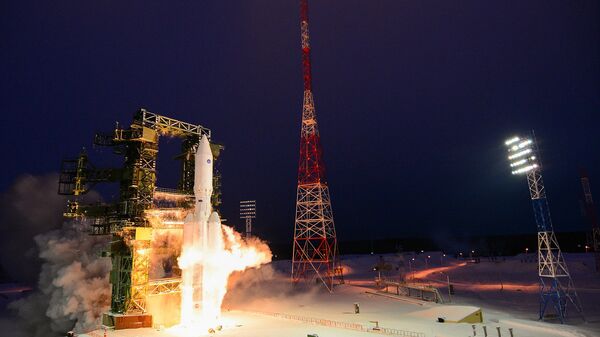The decision was made at a joint meeting of the Scientific and Technical Council of Russia's space agency Roscosmos and the bureau of the Russian Academy of Sciences' space projects council.
The rough design of the prospective carrier rocket was presented at Roscosmos on 22 November.
"From the technical point of view, no concerns have been voiced about the rough design of the carrier rocket. But it turned out that there are no plans for the rocket apart from the landing of Russian cosmonauts on the Moon half a century after the [landing of] US astronauts. In this connection, it was decided to determine and explain the reasons for additional objectives. This primarily concerns scientific projects, such as launching heavy research vehicles to the outer space and orbiting large research observatories", a source said.
Earlier, Roscosmos announced that progress MS-13 cargo spacecraft is to be launched to the International Space Station (ISS) on 6 December.
Roscosmos specialists completed the sequence of operations to mate a #ProgressMS13 cargo spacecraft to the adapter section.
— РОСКОСМОС (@roscosmos) November 27, 2019
The launch is scheduled for December 6, 2019 🚀 pic.twitter.com/PacOhiNp1A
Earlier in October, the Russian aerospace industry also revealed plans to send up an anthropomorphic robot based on the Fedor design.
Given its existing space programmes, Russia is planning to return to the Moon in a variety of capacities in the coming decades.


